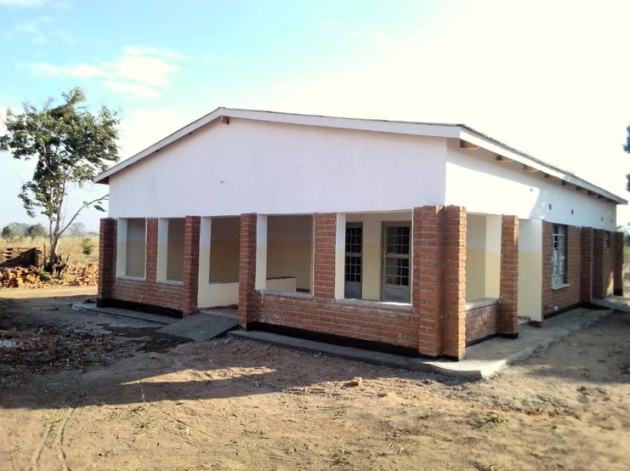Electrify Chinduzi, the clinic at mountain’s shade
Fundraising campaign by
Peter Christopher Mango
-
US$1,135.00raised of $6,890.00 goal goal
Campaign Story
INTRODUCTION
Malawi is a former British colony in southeastern Africa, which became a republic in 1966. Following post-colonial transition, it became a totalitarian one-party state, a condition that lasted for about 30 years. Nowadays Malawi is a free democracy with limited economic resources and one of the lowest GDP in the world. The Republic of Malawi has a small economy predominantly based on agriculture. This makes around the 85% of the population to be reliant on seasonal crop harvests, fishery and herding, as their only annual income. The risk of low harvests has always been high in Malawi, mainly due to droughts and pests which destroy crops and that are projected to increase in frequency and intensity due to the effects of global warming [1]. One of the results of this fragile economy is that access to health care services can be difficult, especially in remote rural areas. Although the country has a public health care system which offer free services, these are mainly located in the urban centers, making the access increasingly difficult for people leaving in remote rural areas tens of kilometers away. Despite these difficulties Malawi shines for his natural beauties and his people loving hospitality, so that it has awarded the nickname of “Warm hearth of Africa”.
We are Giancarlo and Filippo and we leave in Turin (Italy), we are members of “A.P.ENDE Onlus”, an Italian NGO that promotes healthcare improvement through international volunteering in Africa, mainly in Kenya and Tanzania. We fell in love with Malawi and its people during our first visit to the country, which took place in 2012. After that trip we went back to Malawi several times and had the chance to get in touch and to become friends with two Malawian fellows, Billy Mphande and Peter Mango, who live in Liwonde, a town in the Southern Region of Malawi famous for the Liwonde National Park. Besides being a small urban center, Liwonde consists of many small rural villages located away from the main paved roads, where people make a living out of agriculture. When we last went back to Liwonde, in September 2019, we had the chance to visit few of these small villages and realized how difficult it is for the people leaving in those villages to have access to medical services. Indeed, only a few of these villages have a (small) clinic and, typically, everyday hundreds of people reach the clinic seeking for medical assistance. Often, reaching the clinics, requires walking for tens of kilometers, particularly for the people which live in villages where no medical assistance is offered. Notwithstanding the basic medical services offered by these clinics, we realized what an important role they play in the everyday life of these communities. Moreover, we understood what an improvement could be achieved if more clinics would be running in the areas far from the town.
Thanks to our friendship with Billy and Peter, who are actively involved in development and training projects in the area, we manage to stay updated on local events and needs. Earlier this year Peter met with the Group Village Headman in Chipamba and his chiefs to discuss the needs of the local community and figure out how to try and solve the most pressing ones. On top of the list there was the lack of a local clinic, indeed people had to walk about 15km to reach the closest one. After defining needs and priorities, Peter approached relevant local stakeholders, including the Machinga District Health Office, applied for a World Connect grant [2], created a first crowdfunding campaign to buy furnitures and building materials (https://www.gofundme.com/f/chinduzi-health-post-project) and got loans from some friends. With these fundings he started building the structure for the new clinic in Chipamba, which will be furnished with medical equipment by the District Health Office.
With the building of the future clinic almost completed, the three of us decided to turn to a crowdfunding campaign to get funding for setting up a solar photovoltaic plant that will provide a reliable source of electricity and running water. The funding campaign will be managed by “A.P.ENDE Onlus”, whose team, beside managing the campaign, and collecting donations, will supervise progresses and expenses. A.P.ENDE has on its side an established and serious organization which is in the field since many years. Its president Margherita and her husband Enrico have a 20 years field experience in managing cooperation projects based in Africa, and will personally collaborate to this crowdfunding campaign.
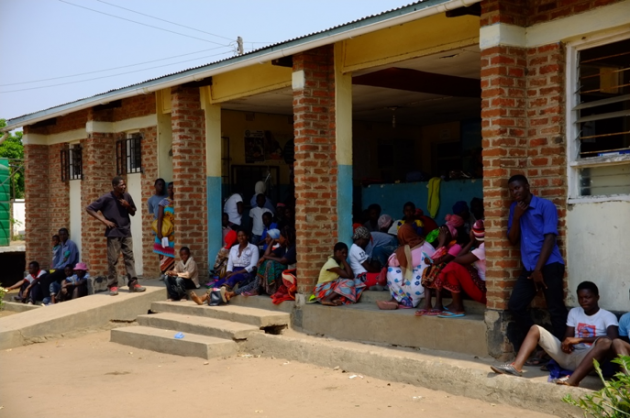
Figure 1: People waiting for healthcare services outside a local clinic near the town of Liwonde. (NOTE: this picture was not taken in Chipamba where the new clinic has been built, but is an example of how a similar clinic, operates during the day.
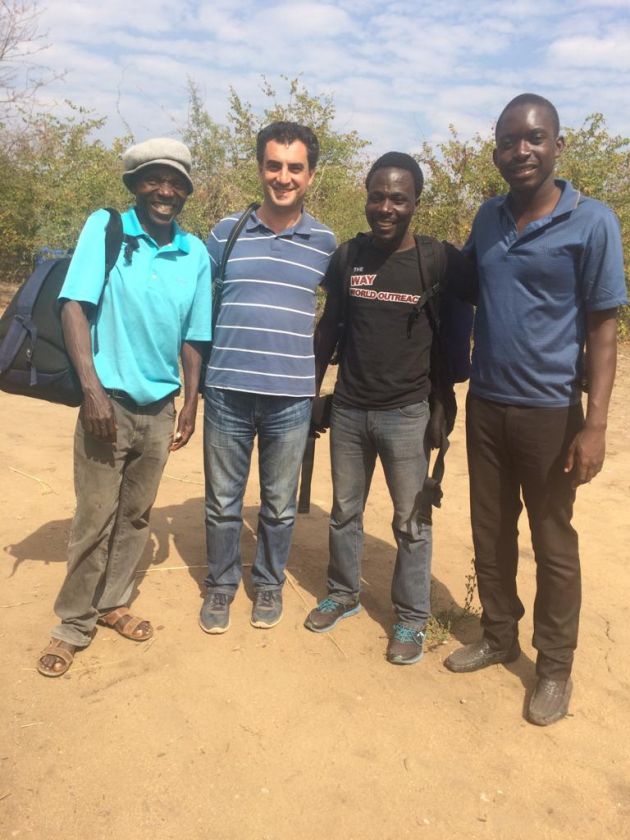
Figure 2: From left to right, Billy Mphande, Giancarlo, Kingsley (a friend of us) and Peter Mango
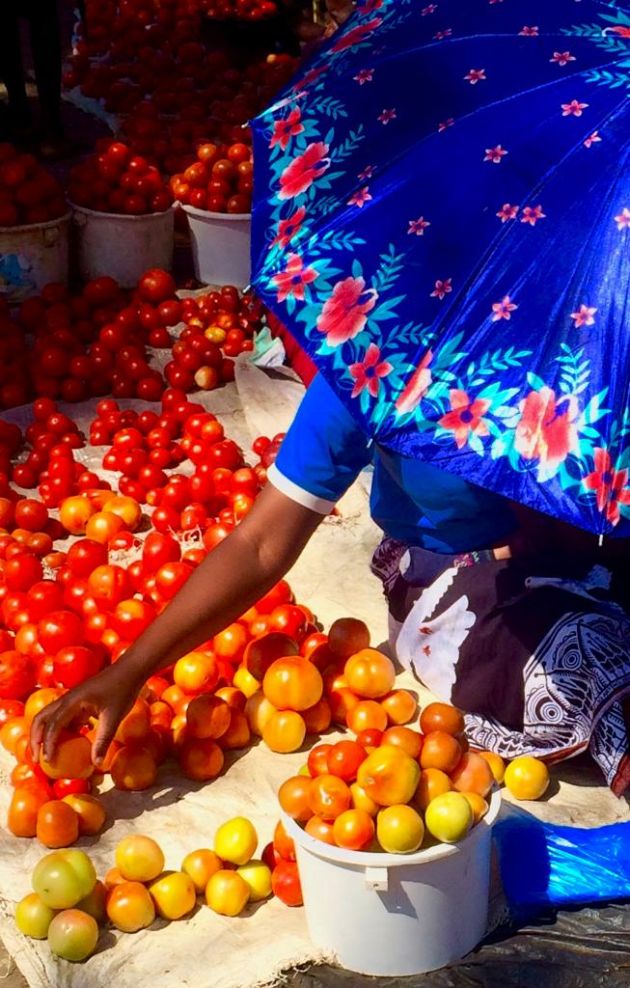
Figure 3: Market in the town of Liwonde.
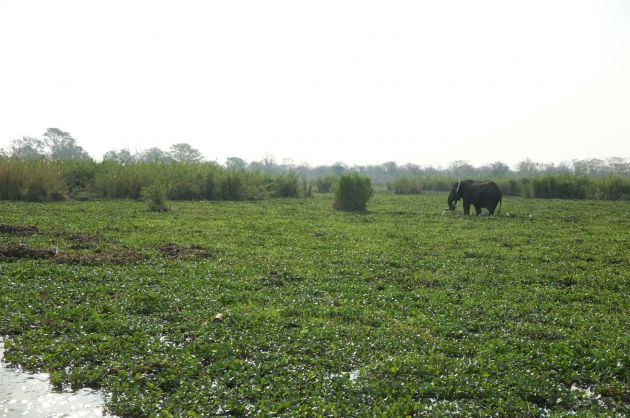
Figure 4: Elephant on the banks of the Shire River, near Liwonde National Park.
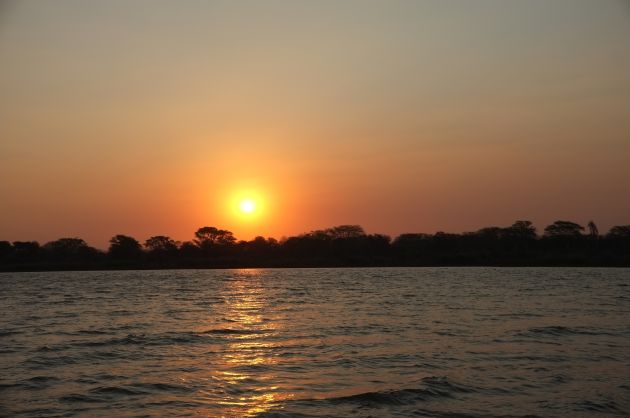
Figure 5: Sunset on the Shire River, near Liwonde National Park.
PROJECT DESCRIPTION
We are launching this crowdfunding campaign with the aim to provide running water and electricity to the new clinic that is being built in Chipamba along the Shire River in southern Malawi.
The small village of Chipamba, where the clinic is being built, is located far from the nearest health centers (Machinga hospital 13 km away and Gawanani health 18 km away) and connected to these urban centers through a maze of dirt roads in bad conditions that the locals, mainly peasant farmers with very few means, have to travel by bike. The proximity to the Shire River increase travels difficulties during the rainy season, when the whole area becomes muddy and sticky, making these journeys to take several hours and often claiming lives. This harsh way to the nearest clinic becomes even more challenging and riskier for women and children which have even less resources that men, in terms of food and resources to bring during the long journey and in terms of physical stamina.
Building this new clinic, Peter aims to provide safer, easier and faster access to medical services to the people living around Chipamba. The clinic will provide preventive health services to the population on a daily basis and will provide specialized services for under-five children and pregnant women once a week. The services of antenatal care to pregnant women in their first, second and third trimester, aim at reducing the risk of stillbirths and complications during pregnancies [3]. Children care services instead will provide, among others, scheduled vaccinations for infants to reduce cases of preventable diseases, in a country where beside malaria, virus-born hepatitis and typhoid fever are also endemic. Overall, the launch of this clinic will help improving the overall health conditions of many families living in the surroundings and will have a significant impact especially on the well-being of women and children, through antenatal, family planning and pediatrics services. When the clinic is built and running it will be managed by the government healthcare system, which will take care of hiring the medical staff and providing equipment and medicines, so that people will be treated free of charges. The antenatal and children care services will be conducted by specialized teams from the local District Health Office (DHO).
CROWDFUNDING GOALS
The main goal of this crowdfunding campaign is that to provide the clinic that Peter is building, with a state-of-the-art photovoltaic system to produce electricity from sunlight. Such rural areas are not reached by the national energy grid, making solar not just the only possibility to provide electricity for health care needs, but also a very effective and cheap one. This technology is established since decades for households and grid electricity production in the western countries, since it is a renewable energy source with no pollution or greenhouse gases emitted after installation and is growing at a terrific pace driven by increasing efficiency and lowering production costs which dramatically reduced the dollars per Watt cost of solar panels. With photovoltaic panels being increasingly cheap, it can become a real opportunity for off-the-grid rural areas to produce locally the energy needed for household usage at prices that are becoming increasing affordable. The need for electricity is particularly crucial for a clinic which have obvious needs of illumination (especially in the dark hours) and access to clean and reliable water supplies, in particular during the dry season.
The first goal of this project is that to install photovoltaic solar panels on the clinic, with relative inverter (to provide grid-like AC electric current) and connections to the building. The dependence of solar electricity on day’s sunlight can be a serious drawback for a healthcare center which needs basic utilities (i.e.: illumination and running water) also during nights. To tackle the lack of sunlight we will install battery packs that will be charged during the day by the solar panels and will provide a steady electricity supply for nighttime needs.
The second goal of this project is to buy a water pump, a tank to be placed on a tower and the relative pipes to use part of the electricity produced by the photovoltaic system to operate a well. This will provide running water for clinic needs and fill the water tank that can be used at night to secure water resources when the solar panels are not producing electricity.
As previously stated, the collection of donations, guidance and assistance in managing the campaign, expenses tracking and reporting will be assessed by “A.P.ENDE Onlus” volunteers.
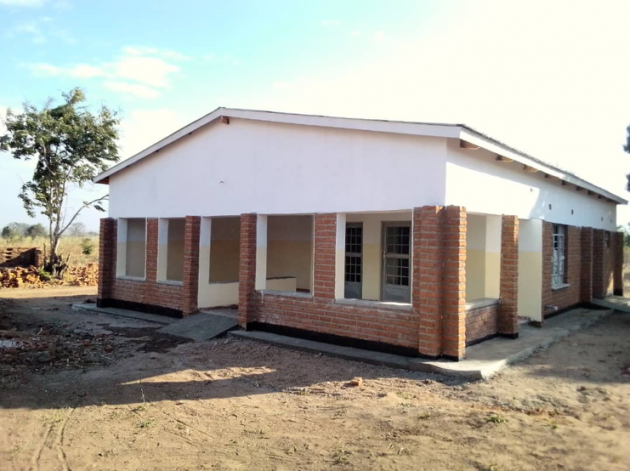
Figure 6: The building for the new clinic in Chipamba during construction.
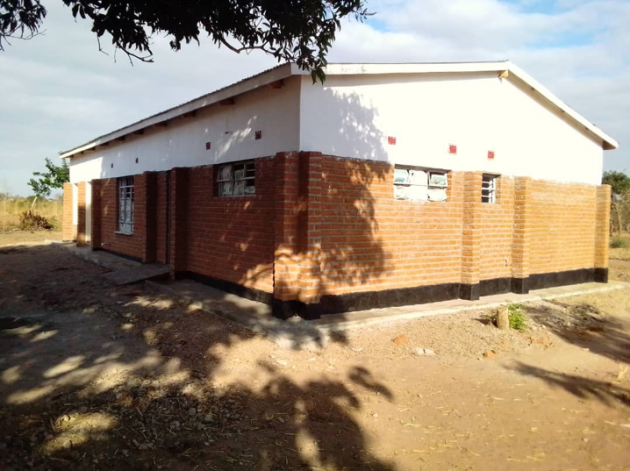
Figure 7: Rear view of the new clinic's building.
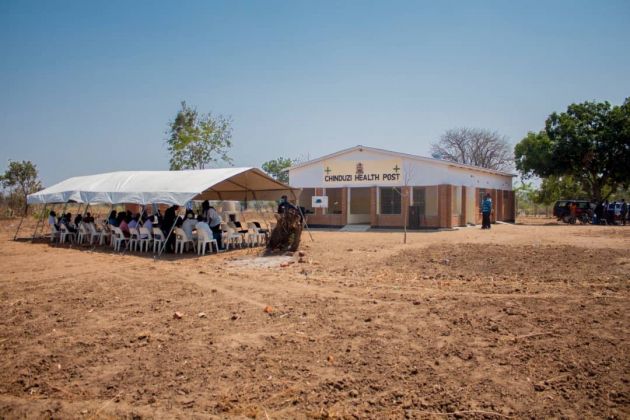
Figure 8: Front view of the clinic during inauguration on September 25th 2020
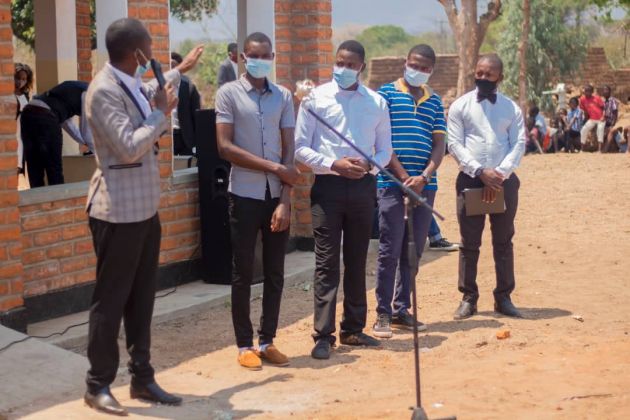
Figure 9: Peter Mango and collaborators on the inauguration day.
NEEDS
To provide energy to the clinic which would ideally need, according to a USAID report [4] for a small health clinic, around 5-10 kWh of electric energy per day, we will install 4 solar panels providing 300W each, for a total 1200W peak-power electricity production. Being around 15º southern than the equator we consider 12 hours a day of sun illumination throughout the year, providing maximum energy per day of 14.4kWh. In order to store this energy to be used for clinic operation during the dark hours, we will install six l2V lead-acid batteries with a storage capacity of 200AH each, providing a total storage capacity of 1200AH which translates to 14.4kWh for this operating voltage. A 2000W inverter-charger will take care of providing 220V AC grid-like electricity to the clinic and charging the batteries. To tackle the need of clean running water of the clinic we will install 1 electric water pump (1hp) to collect water from a deep well and a water tank to store it and secure a constant water supply. A detailed bill of materials is reported in the followings:
· Four (4) 300W photovoltaic solar panels. Cost ~281$ each, total ~1124$.
· Six (6) 12 V lead-acid batteries 200AH. Cost ~439$ each, total ~2634$.
· One (1) 2000W 12V inverter-charger. Cost ~240$.
· One (1) 1hp electric water pump. Cost ~1685$.
· One (1) water tank. Cost ~583$.
· Panels and battery mounting structure. Cost ~420$.
· Water pipes. Cost ~200$.
Based on the reported bill of materials, we estimate a total cost of ~6890$ (~5870€) to complete this project.
REFERENCES
[1]: https://en.wikipedia.org/wiki/Malawi
[2]: https://www.worldconnect-us.org/
[3]:https://www.who.int/reproductivehealth/publication...
[4]: https://pdf.usaid.gov/pdf_docs/PNADJ557.pdf
OUR BIOGRAPHIES
Peter Mango is a young Malawian who is dedicating his life to improve the conditions of local rural communities around his hometown of Liwonde. Among others was the recipient in 2019 of a Mandela Washington Fellowship, aimed at providing training at US Universities for young Africans, to develop leadership and entrepreneurial skills. In recent years Peter has been developing solar projects which have proved efficient and effective in providing electricity to rural communities and is involved in local projects to provide healthcare services to children and expecting women. He motivated other fellow Malawians in development of social project and activities promoting the idea of creating jobs rather than seek them, in a country which offers very few employment opportunities. Moreover, Peter aims at improving his skills and knowledge through collaborations and networking with research institutions and innovation centers around the world.
Giancarlo Cicero is a Physics teacher in Torino (Italy) with the passion for travels and photography. After visiting Africa for his first time in 2007, he has been willing to carry out a cooperation project with the aim of improving village people life quality. Meeting Peter Mango and Billy, while visiting Malawi in 2012, gave him the opportunity to promote a development project which originate from fundamental needs and requests of Malawian people: the realization of a local hospital in the small village of Chipamba.
Filippo Savazzi has a B.Sc. in Electrical Engineering and a M.Sc. in Nanotechnologies. He is currently completing his PhD in Physics in Torino (Italy). In his free time, he enjoys travelling, reading, developing DIY projects and cooking. I discovered Malawi and met Billy and Peter travelling with Giancarlo, after hearing many passionate stories about his previous journeys there, and immediately fell in love with the country’s natural beauties and amazing people.
“A.P.ENDE Onlus” aims at improving healthcare quality by supporting medical structures and promoting professional formation of the people involved. It operates mainly between Italy, Kenya and Tanzania. During the years the organization promoted many projects in the field of medical assistance, among others the building of a health center in Madilu (Tanzania) and “Project Ndege Ndogo” to provide rural villages in Laisamis District (Kenya) with a small aircraft to move medical personnel and drugs between these very far apart villages and a dispensary in the village of Korr.
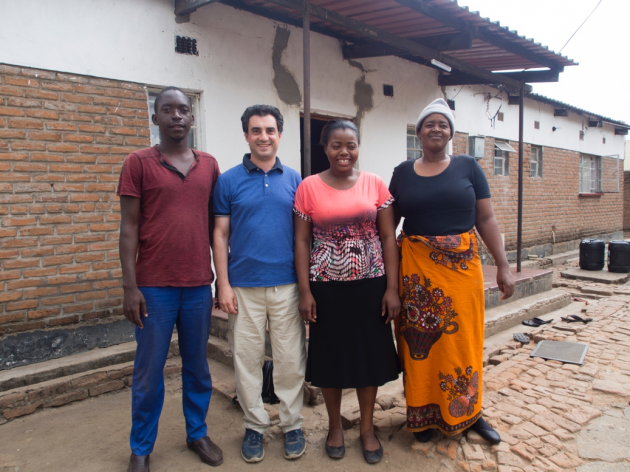
Figure 10: Giancarlo with Peter and part of his family.
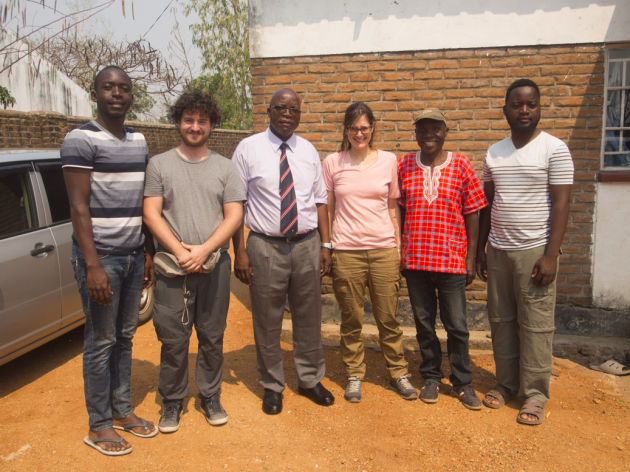
Donors
- Elena Tresso
- Donated on Apr 22, 2021
- Patrick Bogue
- Donated on Mar 11, 2021
Great work
- Elena
- Donated on Feb 22, 2021
New Year's Update
Update posted by Peter Christopher Mango at 05:20 pmHello to all our followers and backers, we wish you an amazing 2021!!After about 2 months and a half since the campaign officially started, we are very thrilled to see that many people decided to trust and support our initiative. Thanks to all your contributions we collected more than 600$. . . . .
Donors & Comments
- Elena Tresso
- Donated on Apr 22, 2021
- Patrick Bogue
- Donated on Mar 11, 2021
Great work
- Elena
- Donated on Feb 22, 2021
- Jeremy Tiedt
- Donated on Feb 18, 2021
Keep up the great work!
- Sara Lafrance
- Donated on Jan 15, 2021
Donation covers the cost of One (1) 2000W 12V inverter-charger.
- Tiziana
- Donated on Dec 29, 2020
I wish you good luck!
- Marcello
- Donated on Dec 28, 2020
- Diana Quintero
- Donated on Dec 27, 2020
- Paolo Pescarmona
- Donated on Dec 22, 2020
Nice initiative. I wish you all the best!
- Anonymous
- Donated on Dec 18, 2020

